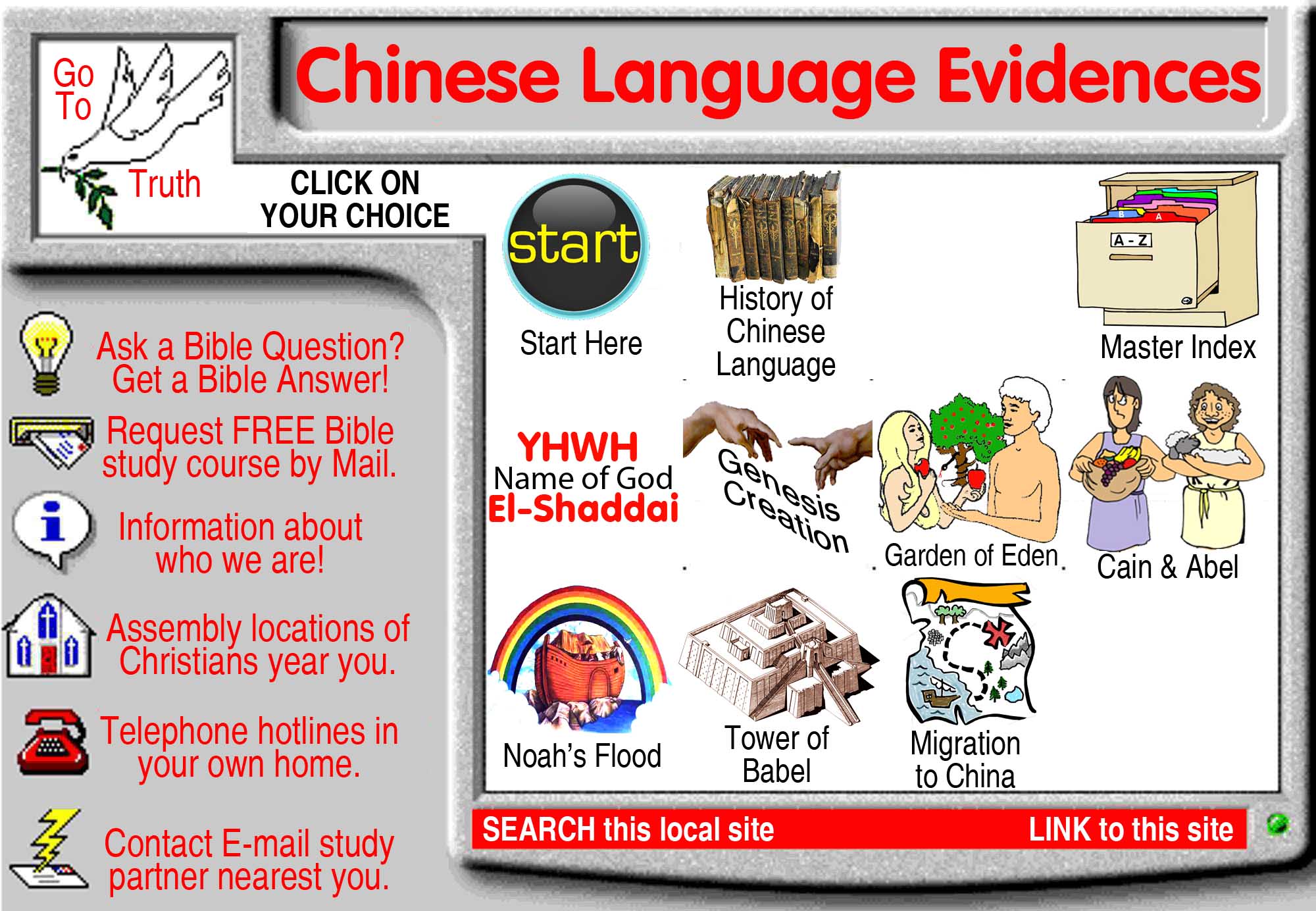
|
Chinese is not an alphabetic language, like most written languages in the world. It is a written language of pictures. Author and physician, Adeline Yen Nah, in her book Chinese Cinderella said of the written syntax of her native tongue: Chinese is a pictoral language, not a phonetic one. Our words come from images. The meaning of many characters is subtle and profound. Other words are poetic and even philosophical.1 Chinese is thought to be the world's oldest written language, dating back beyond 2,000 BC. The Encyclopaedia Britannica suggests that it ...began to develop in the early 2nd millennium BC. The earliest known inscriptions ... date from the Shang (or Yin) dynasty (18th - 12th century BC), but by then it was already a highly developed system, essentially similar to its present form."2 This would place the origin of the ancient Chinese syntax very close to the time of the dispersion from the tower of Babel recorded in Genesis 11. Why is the dispersion from Babel important? From the time of the flood until the scattering of the nations, "...the whole earth was of one language, and of one speech...", and the people remained together, fearing "...lest we be scattered abroad upon the face of the whole earth." (Genesis 11:1, 4) The next several verses in the Genesis account reveal that God confused the language of the people and scattered them abroad over the face of the whole earth. This is the origin of nations and languages. From Babel, a people departed and eventually settled in what we now call China, with their own distinct verbal language, and soon thereafter, they constructed a written code. That written code (as identified above, a pictoral language) has in it a record of the pre-Babel history of mankind which parallels the Bible record. To further emphasize the significance of these details being found in the Chinese language, it is essential to consider when the inspired Hebrew text was penned by Moses. The Exodus from Egypt took place in the 1400s BC. Moses, at the age of eighty (Exodus 7:7) led the Israelites away from their bondage and toward the promised land of Canaan. He would die forty years later at the top of Mount Nebo (Deuteronomy 34:1,7). The book of Genesis, written by Moses, was penned as much as 800 years after the events at the tower of Babel, and over 500 years after the development of the written Chinese language. Simply stated, the pre-Babel history of mankind was recorded in the Chinese language prior to Moses receiving and recording it by inspiration in the book of Genesis! In the Shu Ching (book of history), Confucius recorded that Emperor Shun made sacrifice to ShangTi. Among the recitals spoken by the Emperor was: Of old in the beginning, there was the great chaos, without form and dark... Thou, O spiritual Sovereign camest forth in Thy presidency... Thou madest heaven; Thou madest earth; Thou madest man...3 Note the similarity with what Moses wrote in the first chapter of Genesis: In the beginning God created the heavens and the earth. The earth was without form, and void; and darkness was on the face of the deep... Then God said, 'Let Us make man in Our image, according to Our likeness... (Genesis 1:1-2, 26) Emperor Shun was making this recital in 2230 BC, in the 23rd century BC. Moses didn't write Genesis until sometime in the 15th century BC! These two cultures (Chinese & Hebrew) had no connection to one another. Moses did not learn the Chinese language and turn it into a story about creation. Neither did Shun possess a copy of the Genesis record, for it hadn't been written yet. One might think it to be a coincidence, but as we will see through the volume of material available, there is a certain link between the pre-Babel record of Genesis and the same information as seen in the etymology of the Chinese language. by William J. Stewart Endnotes:
|